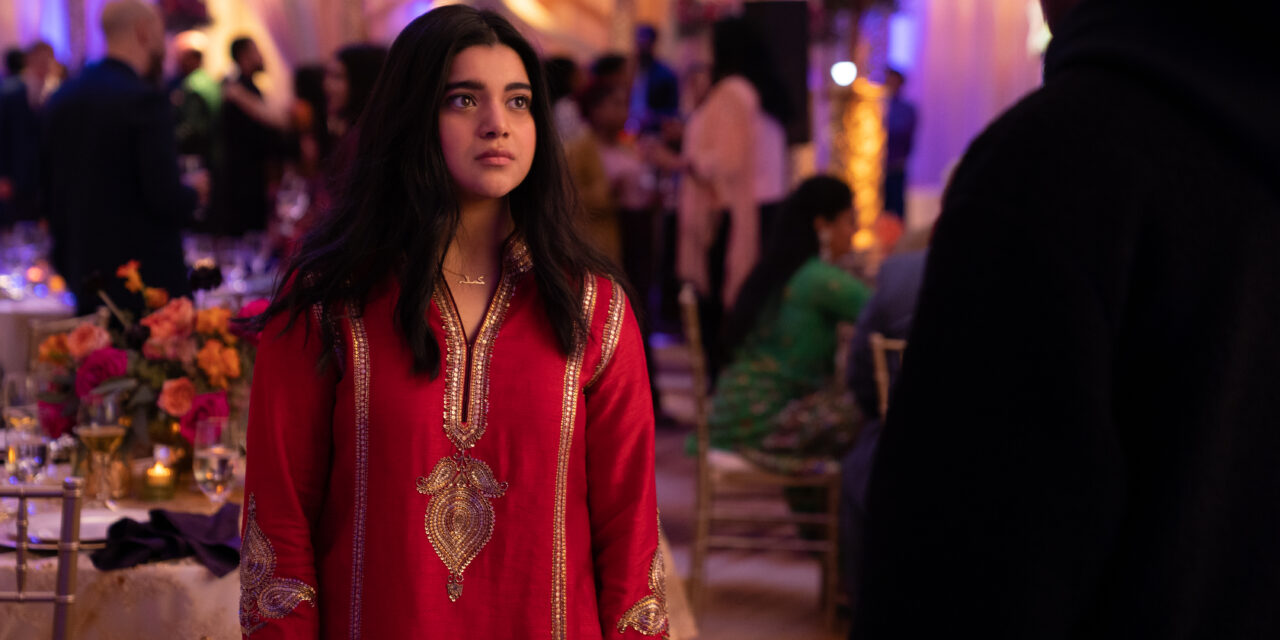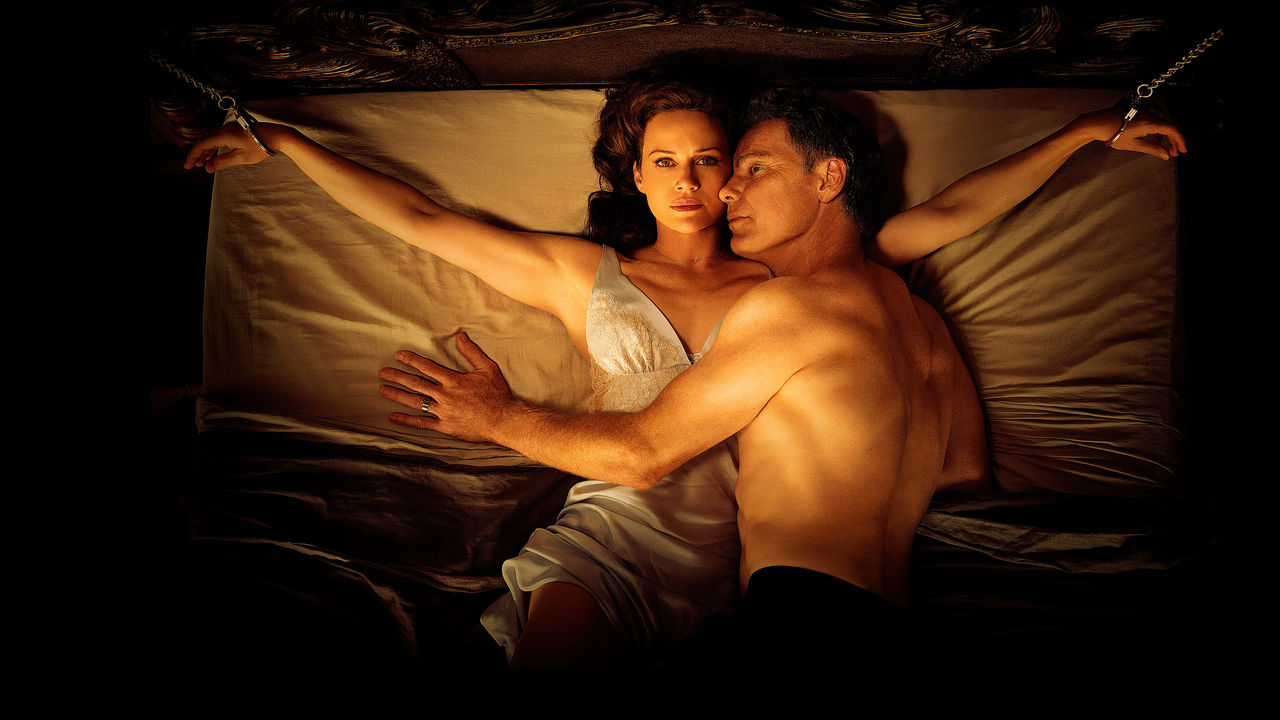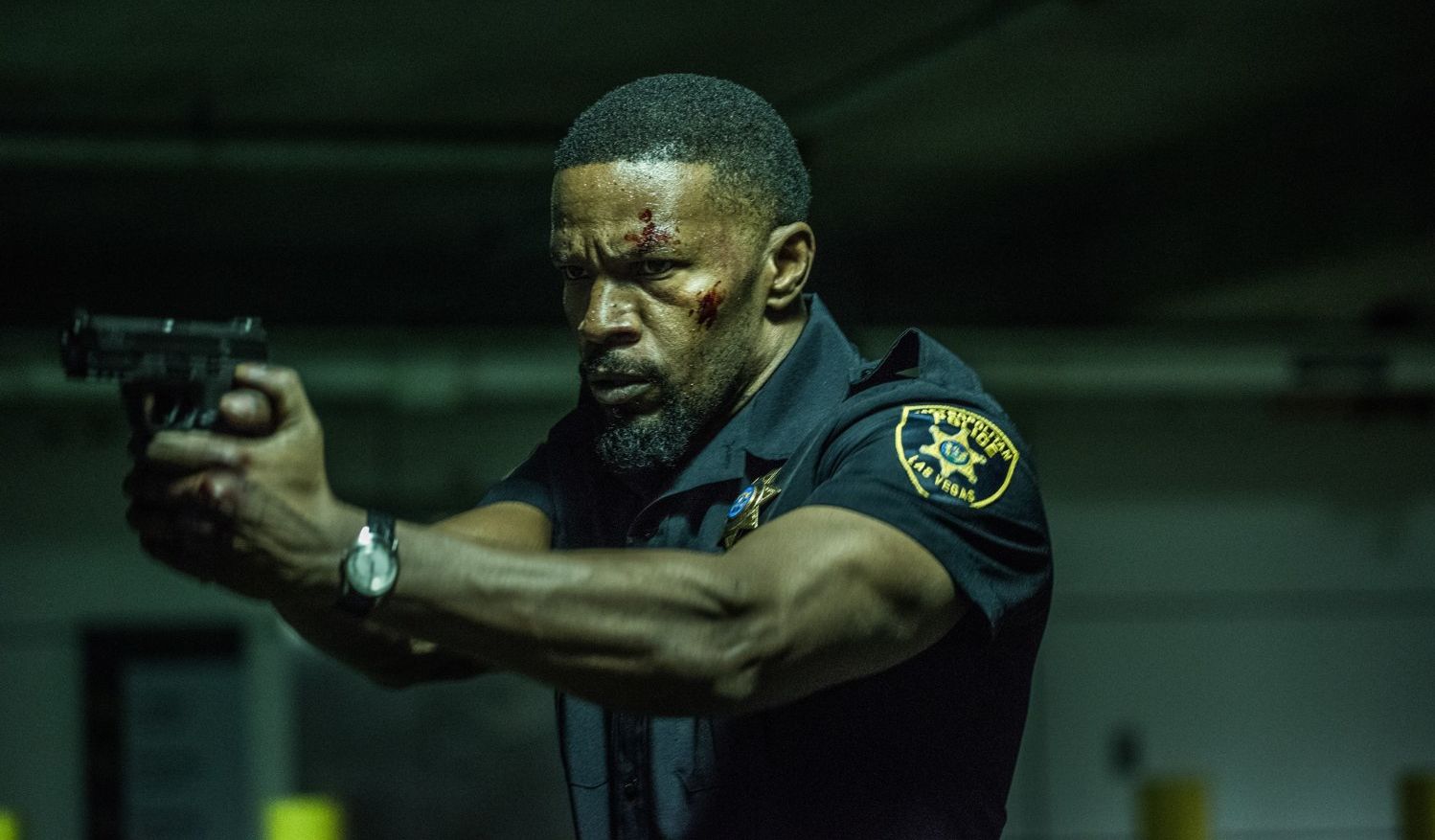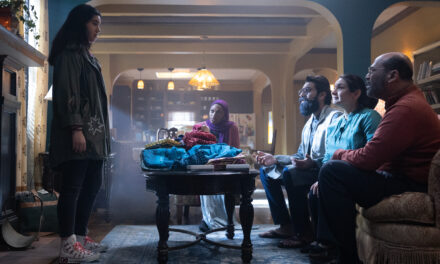Keep up with our Ms. Marvel reviews here.
The concept of family and its importance has been prevalent in the through-line of young MCU superheroes. In Hawkeye, Kate Bishop and her mother had a contentious relationship based around her wanting to be a superhero and Eleanor’s dealings with Kingpin. During the MCU Spider-Man trilogy, Aunt May served as an emotional anchor for Peter, culminating in her death at No Way Home. In the third episode of Ms. Marvel, Kamala has a crisis of faith from two perspectives. Being a hero is much more than swooping in and saving the day. There’s a human cost for every action or miscalculation.
Family is where the heart is.

Iman Vellani as Ms. Marvel/Kamala Khan in Marvel Studios’ MS. MARVEL. Photo by Daniel McFadden. ©Marvel Studios 2022. All Rights Reserved.
Even though Kamala (or Night Light) saved the kid from falling off the mosque, he got hurt anyway. She doesn’t have a full grasp of her powers yet — a theme that is refreshing to visit in a cinematic universe that is so dynamic in power. Not everybody is excited at the prospect of an enhanced being lending a helping hand. Muneeba speaks about her concerns that Kamala overhears. There’s the burden of these powers from the bangle going haywire, and then there are The Djinn (or Clandestines). This theme of using power for a perceived “greater good” has been exploited by supposed allies that say they are looking for the best scenario.
Remember Mysterio with Tony Stark’s tech in Far From Home? Najma expresses the same motivations, where she and the Djinn are trying to return to the Noor dimension. Bruno lets Kamala know this plan has the potential to backfire in a big way. These things add to Kamala’s anxiety about her potential life of “saving the world.” If there’s a lesson running throughout all the phases of the MCU, it’s that heroism has a cost to it. You’ll love loved ones and potentially yourself trying to make the world a better place. Where ‘Destined’ creates a unique compass, Ms. Marvel adds Kamala’s culture to make it an unforgettable experience. The dance number performed to Asha Bhosle’s “Yeh Mera Dil Yaar Ka Diwana ”after Aamir and Tyesha’s wedding was a fun break.
Both Muneeba and Yusuf speak to both children at their low points and let them know family is a pillar. With Muneeba, she talks with Kamala about her struggles as an American immigrant and how the mosque and family anchored her. With Aamir’s worries about money before his wedding, Yusuf speaks of how choosing love is a sense of strength. There’s also a pang of sadness because it’s not like Kamala can come out and tell her parents about the bangle — so that internal struggle remains.
These situations, coupled with Kakia confronting Sadie Deever of the DODC about the complete disregard of respect when she looks for Kamala in the mosque, are a lot to tackle. Sometimes, “Destined” loses itself in all it’s trying to say. Mostly, it sticks the landing with the main sticking points. That’s another caveat to having a six-episode series. So much has to be wrapped up in a short amount of time.
I’ve seen some criticisms regarding the lack of action sequences with Ms. Marvel. Remember, these are kids with a slight grasp of what the bangle entails, and the enemies have just revealed themselves. The end of “Destined” hints we will go to Karachi to further dive into Kamala’s family history retrospectively with her great-grandmother Aisha. Is she still around, but caught in another dimension? There’s a reason Kamala and Najma see the train when the bangle becomes activated. How did the bangle even get here? In the episode’s flashback, there is a ten rings Easter egg — along with the notion that the bangle was on a severed arm. There is a second out there, but who has it? Many inquiring questions along this hero journey are waiting to be discovered.
Photo Credit: Marvel/Disney













